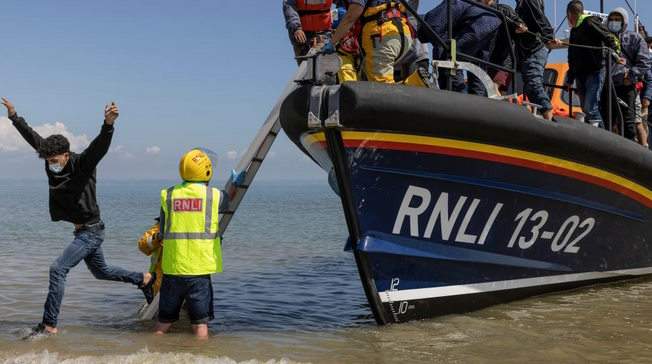
GT Stewart represented MA in the Court of Appeal case which has clarified the law on the prosecution of those who arrive or attempt to arrive across the channel in small boats. They continue to represent him in the ongoing criminal prosecution.
MA is represented by Will McGahan (GT Stewart Solicitors), who instructs Ronnie Manek (also of GT Stewart) along with Sonali Naik KC, Jennifer Twite, Ali Bandegani and Raza Halim of the Garden Court Chambers Immigration Team.
MA, a young man from Sudan, attempted to cross the channel in a small boat, from which he was rescued and then arrested on 8th August 2022. He stated that he had come to the UK to claim asylum. There are no legal routes from Sudan to the UK. He was charged with attempted illegal arrival under section 1(1) Criminal Attempts Act 1981 and section 24 (D1) Immigration Act 1971 and remanded in custody. He spent over four months in prison before being bailed on 19th December 2022.
MA’s case was heard in the Court of Appeal, along with two others, where the Lord Chief Justice heard an appeal from the preparatory hearing at Canterbury Crown Court (R v Mohamed, Mohamed, Aldaw [2023] EWCA Crim 211). The court considered the interpretation of the new offences introduced by the Nationality and Borders Act 2022.Pr
Ms Naik KC argued that the offence under section 24 (D1) IA 1971 does not apply to those who, like MA, are unable to legally travel to the UK, but need to seek asylum in this country. Section 24 (D1) makes it an offence for a person to knowingly arrive in the UK without valid entry clearance, where such entry clearance is required. A Sudanese national cannot apply for entry clearance in order to seek asylum, and there are no legal routes for a Sudanese asylum seeker to the UK. Ms Naik KC therefore argued that there was no requirement for a person in MA’s position to have a valid entry clearance, and if there was that would be a breach of the Refugee Convention.
The Court of Appeal rejected this argument, confirming at paragraph 51 that:
“Asylum-seekers are not excluded from the scope of the powers to require entry clearance to be obtained before arrival.”
On 5th April 2023 the Court of Appeal refused to certify this matter as one that raised a point of law of general public importance that ought to be considered by the Supreme Court.
This ruling means that anyone from Sudan arriving in the UK intending to claim asylum will be committing a criminal offence. The Court of Appeal ruling states that such a person requires entry clearance to be obtained before arrival, whilst accepting that such a person is not able to obtain entry clearance before arrival.
It is difficult to see how this could be compatible with the Refugee Convention. In parliament when the Bill was being passed, the government stated that the intention was to only prosecute the “most egregious cases”[1]
Mr Justice Cavanagh in his ruling on the preparatory hearings also confirmed that whilst section 24 (D1) did apply to those seeking asylum in the United Kingdom:
“The fact that the person is seeking asylum may have an effect on the prosecutorial decision
as to whether it is in the public interest to prosecute, but that is a different matter.”
We may therefore hope to expect some very careful decision making by the Crown Prosecution Service when it comes to determining whether it is in the public interest to prosecute those who come to this country with the sole intention of exercising their rights to claim asylum under the Refugee Convention.
This week the Crown Prosecution Service confirmed that the prosecution of MA will continue. They consider that it is in the public interest to prosecute him. His case will therefore be listed for trial.
[1] Further, as the Nationality and Borders Bill was considered on second reading by the House of Lords between 5 January and 14 March 2022, when challenged the then Minister of State for the Home Office, Baroness Williams of Trafford said that prosecutions under s24 (D1) are for the most egregious cases